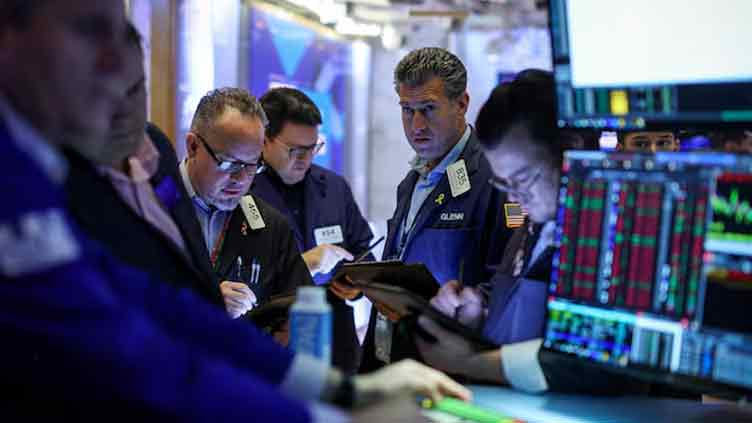Asia stocks fall despite China GDP beat

Business
Nikkei on course for its worst week in three months
TOKYO (Reuters) - The tone in global stocks turned weaker on Friday as Asian shares tracked overnight losses on Wall Street, even as bond yields slid amid a revival in bets that the Federal Reserve will cut interest rates in June.
Japanese equities were standout underperformers, with the Nikkei on course for its worst week in three months, buckling under the weight of a resurgent yen amid rising bets for a Bank of Japan rate hike next week.
Chinese stocks drew some support after official figures showed the economy expanded 5.4% in the fourth-quarter year-on-year, much stronger than expected and putting full-year 2024 growth at 5%, bang in the centre of Beijing's target.
Mainland Chinese blue chips CSI300 were up 0.3% as of 0207 GMT, while Hong Kong's Hang Seng HSI added 0.14%.
China's yuan strengthened slightly to 7.34 per dollar in offshore trading.
Japan's Nikkei slumped 1.1%
MSCI's world index edged down 0.05%. Its broadest index of Asia-Pacific shares lost 0.4%.
Meanwhile, US S&P 500 futures pointed 0.1% higher after the cash index closed down 0.2% overnight. Those small declines came after a 1.8% jump on Wednesday - the biggest daily percentage gain since the post-election rally on Nov. 6 - fueled by strong bank earnings at the start of the new reporting season.
US stocks ended lower on Thursday as investors parsed the latest corporate earnings and economic data, and Big Tech stocks weighed on the Nasdaq.
The end of the week is likely to be a cautious one though, ahead of Donald Trump's inauguration as US President on Monday, which is also a market holiday for Martin Luther King Jr. Day.
"Investors are enjoying the re-anchoring of the market narrative to company fundamentals and away from the macro, with earnings season so far proving robust," said Kyle Rodda, senior financial market analyst at Capital.com.
At the same time, declines in the dollar and bond yields come as "fears of sticky or re-accelerating inflation and a prolonged pause or an end to the Fed's cutting cycle eased," he said.
Ten-year US Treasury yields stood at 4.6125% in the latest session, after sliding to the lowest since Jan. 6 at 4.5880% on Thursday, when Fed Governor Christopher Waller said three or four interest cuts this year are still possible if US economic data weakens.
Ten-year Japanese government bond yields eased along with overnight moves in Treasuries, even as comments from BOJ Governor Kazuo Ueda and one of his deputies, Ryozo Himino, this week spurred a rise in bets for a quarter-point hike on Jan. 24 to 79%.
The yen pushed to a fresh one-month high of 154.98 per dollar on Friday, with the US currency also sagging on the prospect of earlier Fed cuts.
The dollar index - which measures the greenback against a basket of six major currencies, including the yen - edged down 0.06% to 108.90.
The euro was little changed at $1.0308, while the beleaguered sterling was flat at $1.2237.
Declines in bond yields supported alternative assets.
Bitcoin edged as high as $101,769.43 for the first time since Jan. 7.
Gold stood at $2,714, hovering close to Thursday's high of $2,724.55, its strongest level in more than a month.
Fed rate cut speculation also buoyed crude oil.
Brent crude futures rose 13 cents, or 0.2%, to $81.42 per barrel, after declining 0.9% in the previous session. US West Texas Intermediate crude futures CLc1 were up 27 cents, or 0.3%, to $78.95 a barrel, following a 1.7% drop.


